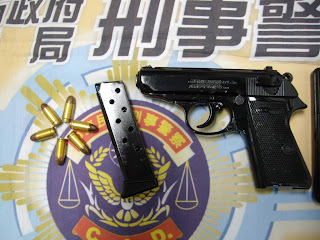 With key elections coming, wild conspiracies are starting to circulate among the public. Skepticism is in order, but this does not mean we should not be paying attention
With key elections coming, wild conspiracies are starting to circulate among the public. Skepticism is in order, but this does not mean we should not be paying attentionI have, on occasion, made the case that Palestinians and Taiwanese have several things in common, including the refusal by the international community to recognize their nation and statehood, an irredentist threat from a more powerful neighbor, and the perception that their predicament is inconvenient for the powers that be.
Like analogies, this is an imperfect one. For one, Taiwanese have not, for a number of reasons, chosen the path of violence to advance their cause and are, in many respects, far better off that Palestinians, despite the ever-present threat of an invasion by China.
However, this is another aspect that unites, if only symbolically, the two peoples: the preponderance of conspiracy theories that circulate among the punditry. The Arab world in general has long been animated by conspiracy theories concerning US and Israeli designs upon their resources and territories, assassination plots and so on.
A lot of this talk in the so-called “Arab street” tends to be speculative, with little grounding in reality, but not all those theories are wrong. What has been difficult for observers of the Middle East is extracting truth from the noise for the real information. To a large extent, the same applies to Taiwan, a reality that imposes upon people with real information on plots in the making a serious handicap in terms of credibility and the willingness of external actors to take them seriously, let alone intervene on their behalf.
Conspiracies usually thrive in environments characterized by fear, uncertainty and secrecy on the part of the stronger opponent, conditions that apply to a large extent to the Arab side in the Middle East, and to Taiwan as well. A history of repression by the stronger side also aliments conspiracy making, again an element that is relevant to Taiwan — twice so, in fact, if we take both the Chinese Nationalist Party (KMT) and China as the oppressors.
Conspiracy season is upon us again, with the presidential and legislative election just around the corner. Not only is the race a very close one, but the outcome is seen by many as a pivotal point in Taiwan’s history, one that will determine whether Taiwan remains a distinct, sovereign state, or one that slowly but inexorably drifts ever closer to domination by China. Needless to say, the apprehension has reached feverish levels on the pan-green side, which expects the KMT — perhaps with help from Beijing, which would rather President Ma Ying-jeou (馬英九) be re-elected than see the Democratic Progressive Party re-enter the Presidential Office — to use a variety of underhanded means to ensure victory.
Representatives from the pan-green camp have already intimated to me, and presumably others, some plots they believe may be in the making. In such instances, one is counseled to take the information with skepticism. What is interesting is that the people I interacted with were already aware they were facing a credibility gap, the direct product of a culture that has allowed conspiracy theories to spread like brushfire.
When faced with such a situation, what one must pay attention to is the specificity of the information. Vague plots, those with no setting, timing, means or actors, can usually be discarded out of hand. Another important element is whether the information can be corroborated, meaning that it is obtained from more than one source (those two factors are at the core of the matrices used by intelligence agencies to assess the reliability of information in their possession, and should apply to a similar degree to the journalistic profession).
With this in mind, one piece of information that has been communicated to me in recent weeks makes me pause, as I’ve heard it more than once from more than one source. Even more importantly is how specific that information was. Starting about a month ago, I began hearing chatter about the possibility that the KMT, if defeated in January, would manufacture a crisis that would ultimately “force” the government to annul the results of the election. Back then such information remained in the “vague” and “unreliable” categories, failing as it did to provide setting, timing, means or actors (the age-old who, what, where, when).
Weeks later, however, I met individuals who did have specifics — not all of them, mind you, but enough to give the creature of conspiracy a little more flesh around the bone, as it were. And remember: I’ve been told this more than once, by more than one source. By no means should this be interpreted as meaning that the information is real, though it certainly makes it somewhat more credible and worthy of our attention.
The timing is Ma’s concession speech. The location is presumably the Presidential Office or Ma’s campaign headquarters, with a crowd nearby. The means — and this is where things become very specific — is one or more hand grenades “without a metallic casing,” which is enough to cause bodily harm while keeping destructiveness to a minimum. The only questions left unanswered for the moment are the nature of the actor (on the pan-blue side, presumably, or someone associated with China) and the actual target of the attack (Ma, an aide, or the crowd).
As to what happens next, well…
 Creation of the department formalizes what has been a longstanding and personalized ad hoc arrangement
Creation of the department formalizes what has been a longstanding and personalized ad hoc arrangement























